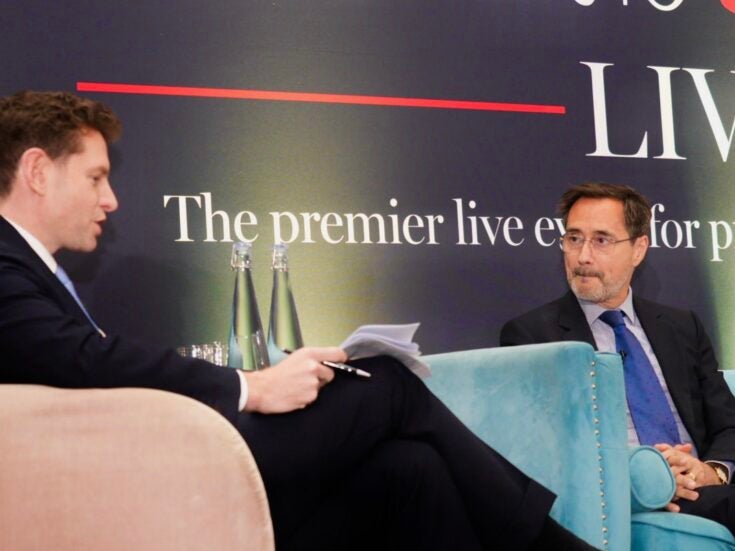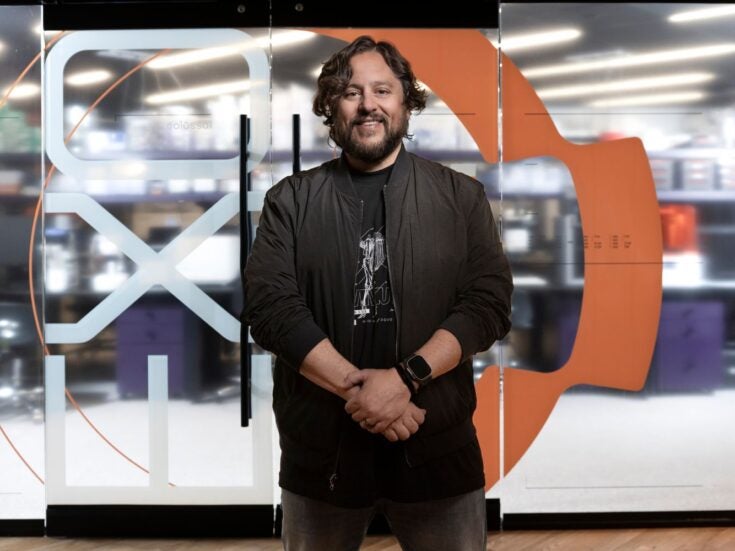
There’s Someone You Really Must Meet
Spear’s talks entrepreneurship with the boys at Vestra Wealth — not so much venture capitalists as matchmakers who bring together good ideas and good money
What sort of entrepreneurs are we seeing today? Is it particularly tech people?
Will Townrow (portfolio manager): London is certainly becoming a European tech hub. Entrepreneurs come from a new and different background from previously and their age profile is certainly different from the more traditional entrepreneur — they’re considerably younger, and that throws up problems and challenges in itself.
Are people making things as much these days?
Ben Snee (founding partner): Most of the people we come across are probably more service-led or tech-led, I would say. Tech has come on a lot in last five years, and as a result it’s easier to start a business. Furthermore, the growth from start to being a big business is much quicker. Groupon, for example, was established in 2008 and had a market value this year of $30 billion.
Is there a middle space?
Will: There’s a huge tech community in London, many of which are creating normal degrees of wealth, but there are several who are really breaking away. I would certainly say that London is becoming a global staging post for the tech industry. It’s Europe’s number one.
Ben: The other sector is probably financial entrepreneurs. Many of our clients made their money by setting up small hedge funds or other specialist investment boutiques.
Is London a lot more hospitable to entrepreneurs than the rest of Europe in the financial services sector?
Will: Culturally we are a nation of entrepreneurs. There is activity in Germany, but it’s more manufacturing-oriented.
David Scott (managing partner): I think people are moving on from the big corporate thing, and the idea that they are going to have a job for life at their place of work has receded. I think they’re thinking, ‘Let’s give setting up something a go.’ I suppose some of the security is going. Take the public sector: it’s not as secure as it was fifteen or twenty years ago. I think a lot of the impediments that were there previously, such as the gold-plated pension scheme that people had, are no longer there — it lowers the threshold to say, ‘Go for it!’
Ben: Richard Branson has been doing it for 40 years, and the generation that has grown up with him is inspired by him. Certainly I was when I was a child. You think you’d have more stability by having a job for life, but in fact if you work for yourself you have complete stability because no one is going to take your job away.
What do you think the government could do to make it easier for entrepreneurs?
Ben: The capital gains tax limits being raised on entrepreneurs’ relief from £5 million to £10 million does help. There’s also a consultation document out at the moment looking to increase tax incentives to stimulate start-up businesses. It is great that they’re looking at that as a way. Ultimately, it’s the new businesses now that will drive the economy in ten or twelve years’ time.

Will: These benefits and allowances that Ben talks about, it does mean that exited entrepreneurs find it easier and more attractive to then seed new businesses. We’re seeing that a lot of post-exit clients now look at seeding and private equity as a very attractive asset class.
There’s a pay-it-back mentality?
Will: I think there is, definitely, and if the government can make that even more attractive it will encourage further re-investments into the sector from entrepreneurs who have already achieved success.
Ben: Another thing that is under consultation is a facility that will allow non-doms to remit offshore funds to the UK to invest in new start-up businesses without a tax liability. If this becomes law, it will be great news for non-dom clients.
So come next April, we might well see a flood of money?
Ben: One would hope.
If I were an entrepreneur, had a great idea and needed early-stage investment, what should I be doing now?
Ben: Well, traditionally you’d probably go to a VC and put together a presentation, you’d have an executive summary and a business plan and you’d send it all off and they’d come back and ask questions. But VC investment peaked in 2006 and there is just less capacity now. It’s a real opportunity for angel investors and private investors wanting to get into this space, and entrepreneurs should be looking towards them.
Will: And I think the attraction is you’re not only getting the entrepreneur’s financial involvement but you’re also getting a mentor with high levels of experience. You’re getting more than a bank loan; the cash brings with it experience.
So it’s a lot more of a personal economy than it is an impersonal big bank economy?
Will: That’s certainly what we’ve found with a lot of our clients — the entrepreneurial clients like mixing with other entrepreneurs. It’s an opportunity to meet new, interesting people with interesting ideas, sense-check their own ideas with other like-minded people, and that’s very important part of our service to our existing clients, putting them in touch with similar people.
What do entrepreneurs want from their wealth managers?
Ben: I think they want to see other entrepreneurial ideas that they can use their skills and experience to analyse, make their own decisions about and invest in. The Vestra offering is not us saying, ‘We’ve found this great thing you should definitely invest in,’ but it is an introduction: ‘Look, here’s something you might find interesting, why don’t you have a chat and find out more.’
They just want to see really good, interesting ideas. Investing in the financial markets is fine for the core of their portfolio but the thing that excites entrepreneurial investors is interesting ideas. What they want from us is access.
Will: Quite often an entrepreneur will have had a highly focused experience over the last ten to fifteen years of one particular industry that they’ve built up and exited from. To take that business acumen and be exposed to new, interesting businesses through a network of other entrepreneurs is very attractive. We are not looking to sell anything to them but just show them new businesses and new ideas.
David: We will quite often co-invest into opportunities personally. If we’re prepared to invest our own money, then we’re not going to show rubbish ideas.

Are there any projects you can name that you invested in with a client?
Ben: There was a data storage business that we individually invested into alongside our clients. We helped seed it from nothing and it has grown into a big business. In 2008-9, when things were really difficult, the business was under a huge amount of pressure and we were able to support the business by providing more funds when things were very tight. We invested our own money and went out to some of our clients. This investment secured the business and since then it has significantly gone up in value. They won a £120 million contract recently and a UK institutional investor put in £20 million in equity at five times the price our clients had invested.
Another one we have been involved with is an online fashion company. We helped raise capital for it when it was pre-revenue. It had a little revenue coming in but not much. We put our own cash in, showed it to half a dozen people who all invested and that is now doing well.
Will: We have an informal ‘entrepreneurs club’, where we have regular meetings and it currently consists of approximately twenty clients. We have tried to arrange it so that we have a real mix of people: we’ve got entrepreneurs who have exited, new entrepreneurs, tech people, City people and executives. They are all different age groups and have different experiences. We bring them together to share ideas and experiences and then introduce any possible opportunities to them.
David: There’s no point in us trying to pretend to be a VC house — we’re definitely not that.
Ben: No, but there are opportunities in the zero to £2 million category that VCs, generally speaking are not interested in. We are in a position where we can show some of these opportunities to clients who may or may not wish to go on and personally invest. We are not providing investment advice but merely making introductions.
Will: But ultimately we are most interested in looking after entrepreneurs and, I think for us to be really taken seriously as a boutique investment house that looks after entrepreneurs, we have to demonstrate that we look after entrepreneurs before they’ve exited so that we are with them through the whole cycle. To be taken seriously we have to demonstrate that we’re not just here to cherry-pick the entrepreneurs who have successfully exited.
David: It’s not part of our core business model but there is an appetite for ideas and opportunities. It’s ultimately because I believe that we are entrepreneurial in what we ourselves have done and we really get a buzz out of it. It comes back to the approach and I think that’s why we probably do have more entrepreneurs as clients, because they can see that we do have the same mindset, we understand everything that they have gone through because we’ve gone through it ourselves.
Ben: Because we were entrepreneurs, and we’ve built a business here where it encourages people to be entrepreneurial.
Illustration by Anthony Haden-Guest
Don’t miss out on the best of Spear’s articles – sign up to the Spear’s weekly newsletter
[related_companies]





